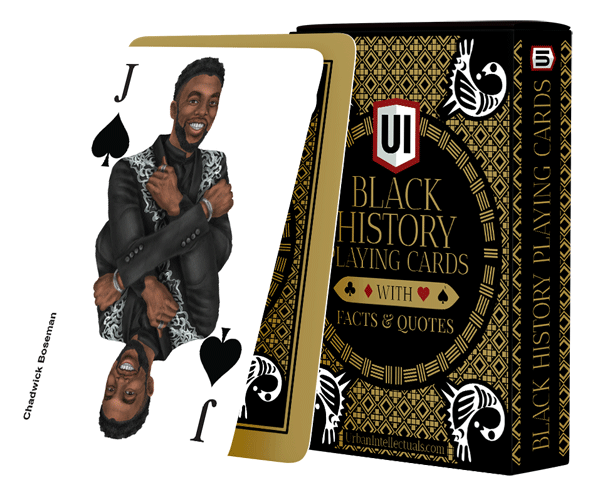The Poet as Warrior
Audre Lorde described herself as a “Black, lesbian, mother, warrior, poet,” and she lived each identity unapologetically, fully, and courageously. In a world determined to silence marginalized voices, Lorde’s pen became her sword. Her essays, poems, and speeches challenged racism, sexism, homophobia, and class oppression — and at the same time celebrated joy, resilience, and love.
“Your silence will not protect you,” she warned, insisting that refusing to speak or write in the face of injustice was itself a form of harm.
Lorde understood that language is not neutral. Words shape consciousness, preserve memory, and ignite action. She believed that literature could mobilize communities, forge solidarity, and articulate visions of a freer world. Her work was never academic abstraction; it was survival, strategy, and freedom in motion.
“Poetry is not a luxury. It is a vital necessity of our existence,” Lorde wrote.
This month, we honor Power of the Pen — a call to wield words as weapons, shields, and tools of liberation. Lorde’s life reminds us that revolutions are written as well as fought, and that the stories we tell, the voices we amplify, and the narratives we preserve are acts of defiance and creation.
Early Life: Forming a Radical Mind
Audre Lorde was born on February 18, 1934, in New York City, to Caribbean immigrant parents from Barbadian and Grenadian backgrounds. Growing up in Harlem, she was surrounded by the vibrancy of Black culture, but also the harsh realities of systemic racism. Her mother, who worked tirelessly to provide for the family, instilled in Audre the value of education, self-respect, and resilience.
At a young age, Lorde discovered the power of words. She read voraciously, absorbing Black literature, poetry, and histories of resistance. She realized early that writing could be both an act of self-definition and a weapon against erasure. Her education, both formal and self-directed, combined with lived experience, forged a mind that would later dismantle oppressive ideas through verse, essay, and speech.
Her identity as a Black woman, and later as a lesbian, made her acutely aware of the multiple systems of oppression that intersect in the lives of marginalized people. But instead of being silenced, Lorde channeled this awareness into art, activism, and radical thought, teaching generations that embracing difference was a source of power, not shame.
The Writing That Transformed Lives
Audre Lorde’s work spans poetry, essays, and memoir, each piece pulsating with intellect, moral courage, and urgency. Among her most influential works:
- Sister Outsider (1984) – A collection of essays and speeches exploring race, gender, sexuality, and the necessity of radical honesty in activism.
- The Cancer Journals (1980) – A candid memoir about her battle with breast cancer, in which she reframed illness as a political and personal narrative of survival.
- Coal (1976) – A powerful poetry collection reflecting Black identity, love, oppression, and the fight for justice.
Lorde’s writing is not ornamental; it is mobilizing. It instructs, challenges, and calls the reader to action. She uses metaphor, storytelling, and personal experience to illustrate systemic injustice while celebrating the beauty and resilience of Black life. Her words demand attention and insist that readers, activists, and communities confront uncomfortable truths.
“I am deliberate and afraid of nothing,” she wrote. In these lines, we see the clarity and courage that defined both her life and her work.
Power of the Pen: Language as Liberation
The pen is a revolutionary tool. Lorde knew that the streets are not the only sites of struggle; writing, reading, and storytelling are equally potent arenas of resistance. Through literature, communities can:
- Document injustice when the official record ignores it.
- Preserve the experiences of marginalized people for future generations.
- Inspire action, solidarity, and strategic thinking.
- Transform trauma into shared wisdom and collective power.
Language is not decoration; it is strategy, survival, and resistance. Lorde taught that poetry and essays are acts of defiance when they articulate truths the powerful would rather erase. Every poem, speech, or essay becomes a map for liberation — a guide for communities navigating oppression and imagining freedom.
Her work also emphasizes care and sustainability. Lorde argued that self-care is a political act, not indulgence:
“Caring for myself is not self-indulgence, it is self-preservation, and that is an act of political warfare.”
Through self-care, reflection, and communal care, activists sustain their work and ensure that movements endure. For Lorde, liberation is holistic: it includes mind, body, spirit, and community.
Cultural Connections and Global Influence
Audre Lorde’s influence reverberates across the African diaspora and contemporary social movements. Her insistence on intersectionality — acknowledging the interplay of race, gender, sexuality, and class — prefigured conversations that dominate today’s activist spaces.
- Black feminist movements have drawn inspiration from her frameworks to organize campaigns for equity, justice, and representation.
- Queer liberation activists cite her work as foundational for understanding how sexuality and identity intersect with racial oppression.
- Global audiences — from African poets to Caribbean educators — recognize her insistence that freedom is both personal and communal, and that words are essential tools in that fight.
In popular culture, her influence appears in music, spoken word, and storytelling: poets, musicians, and rappers draw on her insistence that voice, visibility, and authenticity are revolutionary acts. From classrooms to community centers, her writings guide conversations about how knowledge, language, and literature can organize, heal, and inspire.
The Legacy of Audre Lorde
Audre Lorde leaves behind more than books; she leaves a methodology of liberation. Her life teaches us that:
- Difference is power – Embrace identity as a source of strength, not division.
- Words are weapons – Speak truth, write boldly, and preserve history.
- Self-care is political – Sustaining oneself sustains the movement.
- Solidarity requires honesty – Community action depends on confronting uncomfortable truths.
- Youth must be heard – Empowering the next generation of thinkers, writers, and organizers is essential for lasting change.
Through poetry, essays, and public lectures, Lorde carved spaces where marginalized voices could flourish. She reminds us that liberation work is intellectual, emotional, and creative, and that revolutions are fought as much in libraries, living rooms, and classrooms as on streets and in courts.
Her work is a blueprint for how language can organize communities, demand justice, and illuminate invisible histories. Each poem, each essay, each lecture is a call to action, a spark in a long-burning flame of resistance.
Reflection Questions
What truths do you need to write or speak this month?
How can literature be used to organize your community?
Whose voices are missing from your bookshelf — and how will you bring them in?
How do you practice care and sustainability while pursuing justice?
Explore Her Legacy
Turn game night into study night:
👉🏾 Black History Playing Cards + Flashcards (Vol. 2: Women) – explore revolutionary leaders, writers, and thinkers whose work challenges injustice.
📚 Get your deck today.»
Join the conversation at Sankofa Universe, share your reflections using #ReclaimTheFlame, and honor Audre Lorde — because the pen does more than record history; it remakes the world.
💬 Let’s Talk:
Had you heard of Queen Nanny before this? What lessons can we take from her leadership today?
👇 Drop a comment and share this with someone who needs to know our real history.



















0 Comments